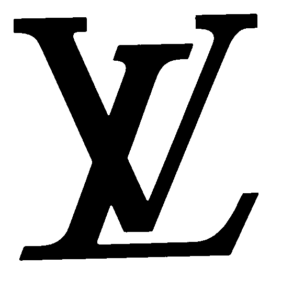Louis Vuitton loses attempt to block trademark registration
 |
 |
In January, the Opposition Division of the European Union Intellectual Property Office („EUIPO”) reached a surprising decision on an opposition filed by Louis Vuitton. The fashion house had sought to block the registration of a trademark that it claimed was too similar to its iconic LV logo.
The proceedings were initiated in November 2021. Louis Vuitton claimed that the trademark consisting of the combined letters „N” and „L” was likely to mislead consumers as to the source of products – primarily clothing, as well as belt buckles, zippers, and snaps for clothing. The EUIPO Opposition Division did not uphold the luxury brand’s complaint and agreed with the applicant, an individual named Aina Yang.
In a decision dated January 14, the EUIPO Opposition Division rejected Louis Vuitton’s opposition in its entirety. It found that although the goods identified in Yang’s application are identical to those offered by Louis Vuitton, and the two marks are slightly similar, there is no likelihood of confusion on the part of the public. Comparing Louis Vuitton’s „LV” logo and Yang’s mark, which consists of the two letters „NL” or „LN”, together with the words „LOVES VITTORIO”, which are presented in a smaller font, in regular capital letters, EUIPO found that the similarity lies largely in the fact that the two marks share the letter L and there is some overlap in the styling of the two letters – the letter L is in italics in both marks and that the two letters are juxtaposed.
Despite these similarities, the authority ruled that the signs differed in all other elements, namely the remaining letters – „V” in the earlier sign and „N” in the challenged sign, the additional words „LOVES VITTORIO” in the challenged sign, and the color scheme of the word elements, black in the earlier sign and white on a black background in the challenged sign. According to EUIPO, consumers will continue to perceive such styling as merely a decorative representation of the word elements because they are used to it in trade marks. Therefore, EUIPO stated that „the mere use of a similar styling in the presence of different elements in the signs is not sufficient to lead the relevant public to think that the goods in question may come from the same or economically related undertaking.”
According to the EUIPO Opposition Division, consumers, based on common knowledge and prior experience in the market, will perceive the sign beyond its stylization and see it as a sequence of letters forming a word element. Therefore, despite the stylization of the marks 'LV’ and 'NL’, the relevant public would be able to perceive the letters 'LV’ (or 'VL’) in the earlier mark and 'NL’ (or 'LN’) in the contested sign, leaving little room for confusion.
The decision is certainly surprising from the perspective of protecting the logos of well-known brands. One wonders whether the lack of likelihood of confusion is unlikely in this case, as EUIPO claims. After all, apart from the difference in letters, the abbreviation for „LOVES VITTORIO” is also LV. One other factor may have been behind the rejection of the opposition, however. Although Louis Vuitton invoked the reputation of its mark in the European Union, it did not provide any evidence to demonstrate it. The EUIPO points out that, where the opposition is based on a mark with a reputation, the opposing party bears the burden of proof. In addition to the fact that the mark has a reputation, it must also show evidence or arguments showing that use without due cause of the contested mark would take unfair advantage of or be detrimental to the distinctive character or repute of the earlier mark. Louis Vuitton failed to meet the deadline to submit, „any evidence relating to the reputation of the marks on which the opposition is based”, so EUIPO concluded that the opposition must be rejected as unfounded.
Perhaps if Louis Vuitton had submitted evidence of the reputation of its trade mark in the European Union, the issue would have been taken into account and the opposition would have been resolved in favour of the French fashion house.
See more:
A Czech court rules on copyright to a work generated by AI
Artificial intelligence is becoming more and more prominent in the sector of music, literature and, as a matter of fact, in most fields that require a creative approach to any task or issue so far reserved exclusively for humans. It was therefore only a matter of time...
Invalidation of trademark rights due to the reputation of the earlier mark
Flegamina, which comes in the form of syrup as well as tablets, is a well-known medicine in Poland for upper respiratory tract infections. Advertisements of this pharmaceutical product have been in the press or on television for many years. The latest decision of the...
Long awaited AI Act enacted by the European Parliament
The enactment of the AI ACT On 13 March 2024, the European Parliament passed the Artificial Intelligence Act (the so-called AI Act), which has long been a significant focus of attention for many technology companies. A large majority of MEPs voted in favour of the AI...
